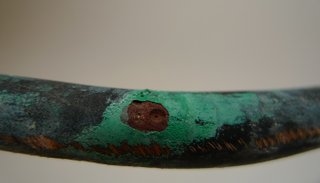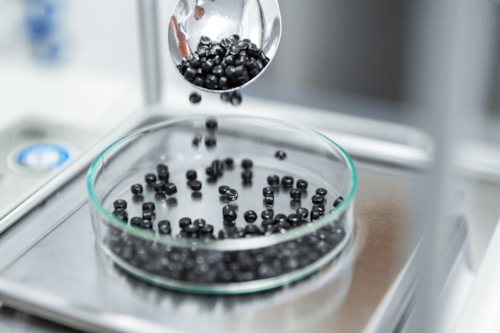
Pipe leaks - damage investigation and copper corrosion
Receive a quote tailored to your needs
One of the most common causes for leakages in water supply systems is corrosion. Different forms of corrosion can be distinguished, such as pitting corrosion, erosion corrosion or stress corrosion cracking. Kiwa Technology in Apeldoorn, the Netherlands, has all the required knowledge, experience and lab facilities to identify the cause or causes of the corrosion.
An initial material study with our generic research approach, together with an inventory of the circumstances under which the pipe has started to leak, leads in most cases to conclusions about the type of corrosion and the cause. In a number of cases, additional (material) research is required to provide more clarity. If desired, we can come to your location to check and assess the situation on sight.
Understanding the cause of the corrosion can help you to:
- Prevent further damage;
- Take the correct remedial measures;
- Recover the damage in a dispute or legal action.
Process steps
To provide you with a sound advice it is important to collect as much information as possible about the usage of the leaking pipe and the circumstances in which corrosion has developed. A questionnaire provides us with more insight into the specific situation, for example about the medium used in the pipeline, usage temperatures, the year of construction, etc. In our laboratory we will examine the leaking or damaged pipeline, using analysis methods such as stereomicroscopy, electron microscopy and elemental analysis. Based on the research results, a conclusion is drawn about the cause or advice is given for further research.
About Kiwa Technology
Kiwa Technology offers a wide range of services in the field of sustainable and safe energy and water distribution. We employ materials scientists and chemists to investigate specific causes of pipe damage such as leaks, corrosion and other failure mechanisms. To this end we have a fully equipped laboratory. Our traditional focus is on pipes and components for energy and water, think of copper, steel, multilayer pipes of, for example, aluminum and plastic, polyethylene (PE), polypropylene (PP), PEX, polyamide (PA) and glass fiber reinforced plastics (GRP) such as based on epoxy or polyester, etc.
Test possibilities materials
At Kiwa Technology, we have years of experience conducting independent damage and material investigations for a wide range of market players, including energy companies, water utilities, contractors, suppliers, manufacturers and insurance companies. Our expertise focuses on pipes and components for energy and water, made from various materials such as copper, steel, plastics and glass fiber-reinforced composites.

Cathodic Protection
Cathodic Protection (CP) is the ideal method for guarding pipelines and storage tanks against corrosion. However, the application of CB requires specialist knowledge, especially in extraordinary situations or when repairing breakdowns.

Additional information
Correct information crucial in researching copper pipe corrosion
It is important to determine the location of the leakage is as well as get insights into what circumstances have caused it. Kiwa materials expert Anya Niehaus conducts research into the behavior and life cycle of metals.